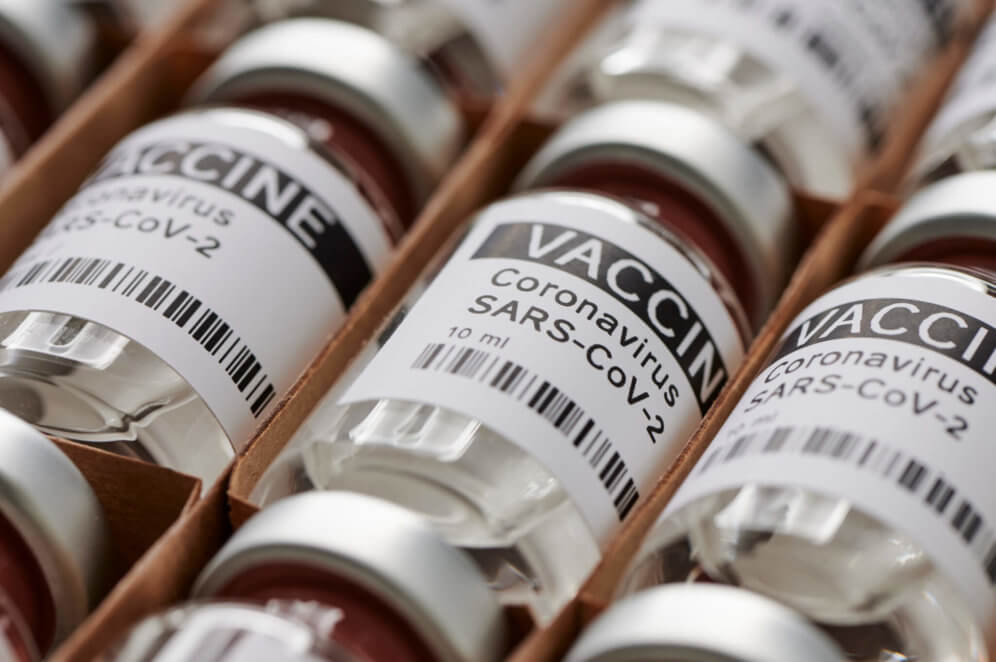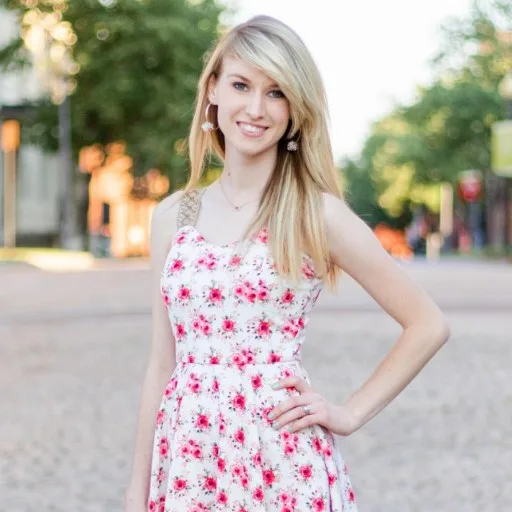
Area health providers worked together to keep their community well during the pandemic.
FAIRFAX – In the midst of the pandemic, several Virginia health departments changed how they operate. And in Fairfax, the plan is actually working.
The Sussex Health Department initially closed. Now it offers office hours three days a week, with telemedicine options available five days a week. The nearby Surry Health Department, part of the same Crater Health District as Sussex, is operating under a similar situation.
In the West Piedmont District, health departments in Martinsville, Henry County, Patrick County and Franklin County, as well as the Bassett Clinic and the Mount Vernon Church Clinic, currently maintain clinic services by offering group appointments. All five offices work together to coordinate events by sharing staff amongst the various departments in the district.
In the Rappahannock Area Health District, only two out of five health departments offer limited clinic services on specific days. Others, like the Chesapeake Health District, offer clinic services four days a week, setting aside a day for COVID-19 vaccines.
Across the board, all health departments currently offer their clinic services by appointment only.
Despite the challenges different districts of the commonwealth faced, one had a particularly unique plan. In Northern Virginia, the Fairfax Health District closed four out of its five health clinics. And the one clinic that remained open to the public operated under varied hours.
Unlike Sussex, there wasn’t an uproar. Local leaders weren’t scratching their heads, wondering what happened to 80% of their clinics. The area had a plan.
And while Fairfax’s plan appears radical at first glance, it’s actually working.
RELATED: When The Pandemic Hit, The Sussex Health Department Left
Closing the Clinics
When the state started distributing the COVID-19 vaccine, Fairfax officials had to make a choice. They needed space to vaccinate the public, while still following pandemic protocols like social distancing. They also needed properly trained nurses to dole out those doses.
The area could do one of two things. One, they could keep the health department’s clinics open and struggle to find space and nurses to distribute the vaccine. Two, they could close the majority of the clinics, giving them the space they needed and the workforce as well.
As officials looked over the options before them, they also considered the community’s variety of established resources. They realized that medical services within the area, but outside of the health department’s clinics, had similar offerings.
Working with other community health providers, Fairfax tapped into a local network to fill any gaps caused by the closings.
“We’ve had partnerships in place here for many years with a lot of our groups,” said Fairfax Board of Supervisors chairman Jeffrey McKay.
That relationship provided four places throughout the area for vaccinations clinics.
“We actually saw a lot of what they were doing as duplicative for what services folks could get in other places. And we thought it was really important to make sure that while we have a main mass vaccination site at the county government center, that it was really important for equity reasons that access be given to folks who need vaccines and communities where they might have difficulty getting to the main mass vaccination center at the main government center because of course the county is very large,” McKay said. “And so, you know, our main goal was in the name of equity, to get vaccines out into the community more, using our existing assets.”
Putting the Plan into Action
The locality decided to keep the Joseph Willard Health Center operational for the public. It converted the Annandale, Herndon-Reston, Mount Vernon and Springfield District Offices into COVID-19 vaccination centers.
All the while, McKay expressed the district had two goals in place.
“Let’s get [the nurses] focused on [vaccinations] while at the same time, making sure we didn’t turn away anybody,” McKay said. “And today, I’m not aware of a single person who’s had a health related issue, unrelated to vaccines, that’s been turned away. They might’ve just been rerouted.”
The decision had a noticeable impact on the number of vaccines the area doled out.
“It’s actually had a very positive impact on our community because, you know, we’re leading the commonwealth by a wide margin in the number of vaccines that we’ve administered. And so, you know, from the vaccine standpoint, it’s been a huge plus for us to be able to do that. I mean, we now have administered almost 200,000 doses of the vaccine just in Fairfax County,” McKay said. “And obviously we’re dealing with phases of vaccine now with very vulnerable people, either by age or by health issue. And so being able to open the centers up to be vaccinated was key in our strategy to reach in vulnerable populations.”
JOIN THE CONVERSATION: Sign Up For Dogwood’s Newsletter
A Potential Gap
“There’s a misperception about Fairfax in particular that, you know, we’re made up of a lot of wealthy, well-to-do folks. And actually quite honestly, that’s not really the optic at all,” McKay said. “We’re a community [that has] high needs. We have a lot of people living in poverty.”
Operating a sole health department-run clinic – hosting hours on Mondays, Tuesdays and Thursdays from 8 a.m. to 4:30 p.m., Wednesdays from 8 a.m. to 6 p.m. and Fridays from 7:30 a.m. to 4:30 p.m. – opened the potential for healthcare gaps.
Fortunately, services offered by HealthWorks, Neighborhood Health, INOVA Cares and the Culmore Clinic effectively covered Fairfax’s healthcare needs to McKay’s knowledge.
“All of those are not-for-profit healthcare providers for people who are uninsured or under-insured. And those are likely to be the people who also come to our health department for assistance. And so they’ve been great partners with referrals. We haven’t missed a single person that I’m aware of,” McKay said. “And what we’ve been able to do is really ramp up our vaccine numbers as a result of that decision.”
A New Kind of Hero
The pandemic shifted the light onto more vulnerable populations. It simultaneously put a spotlight on essential workers of all kinds.
“For the rest of our community to recognize that and to try to help those folks through a really difficult time has been really inspiring and has helped all of us realize that, you know, some of the everyday heroes that we know are out there, like the police and our fire and rescue and our healthcare workers. Some of those other everyday heroes, like the people who work at the grocery store or the post office or the retail stores have taken on a new light in this county,” McKay said. “I’ve seen our residents almost entirely embrace them as the new heroes of the world that we’re living in now. And so that’s really been inspiring to see.”
Certain healthcare workers also became heroes in the county, as they inoculated the public.
“I’m in the same building as our mass vaccination clinic. And when I go down there and see the number of people getting vaccinated, but also the number of volunteers – we have hundreds of volunteers across the county helping to vaccinate people. We have the business community donating food a lot in our community. We have our nonprofits who have stepped up. And then even in the day-to-day neighborly things, I mean, this community has stood up in more ways than I can imagine in the toughest of times, really,” McKay said. “We’re resource-rich here. We’re blessed with that, but we never take anything for granted. And, you know, I think this community has realized there’s a lot of vulnerable people out there.”
Opening Again
The closure of the health clinics is not permanent. As pharmacies and other area retailers receive more COVID-19 vaccine doses, McKay noted the need for the health department clinic vaccination centers would eventually decrease.
“As more of those locations open up to vaccinate and the need to have some of our other health clinics closed for reasons other than vaccination will go away because there’ll be enough stores, retailers, things embedded in the community that we no longer will have to do that,” McKay said. “And so we’re monitoring it week-to-week. As more vaccines come in, more locations in the private sector open, we will get those health departments right back to the way they normally were operating before the vaccination efforts.”
Amie Knowles reports for Dogwood. You can reach her at [email protected]
Support Our Cause
Thank you for taking the time to read our work. Before you go, we hope you'll consider supporting our values-driven journalism, which has always strived to make clear what's really at stake for Virginians and our future.
Since day one, our goal here at Dogwood has always been to empower people across the commonwealth with fact-based news and information. We believe that when people are armed with knowledge about what's happening in their local, state, and federal governments—including who is working on their behalf and who is actively trying to block efforts aimed at improving the daily lives of Virginia families—they will be inspired to become civically engaged.


VIDEO: Your support matters!
Your support matters! Donate today. @vadogwoodnews Your support matters! Visit our link in bio to donate today. #virginianews #virginia #community...

Op-Ed: Virginia’s new Democratic majorities pass key bills to improve your lives, but will Youngkin sign them?
The 2024 Virginia General Assembly regular session has wrapped up. It was a peculiar session from the outset, with Democratic majorities in the...

Op-Ed: Why Virginia Needs A Constitutional Amendment Protecting Reproductive Freedom
Virginia’s recent election season in 2023 drew in eyes from all over the country. Reproductive freedom was on the line and Virginia remained the...

From the state rock to the state flower, here’s how Virginia got its symbols
Have you ever wondered why the Dogwood is the state flower? Or how the cardinal became the state bird? We’re here to answer those questions and more...

VIDEO: Second-gentleman Douglas Emhoff gives speech on reproductive freedom
Second gentleman, Douglas Emhoff touched on reproductive freedom not only being a woman's issue but "an everyone's issue" during the Biden-Harris...

Glenn Youngkin and the terrible, horrible, no good, very bad night
Election Day 2023 has come and gone, and while there are votes to be counted, one thing is perfectly clear: Virginians unequivocally rejected Gov....





